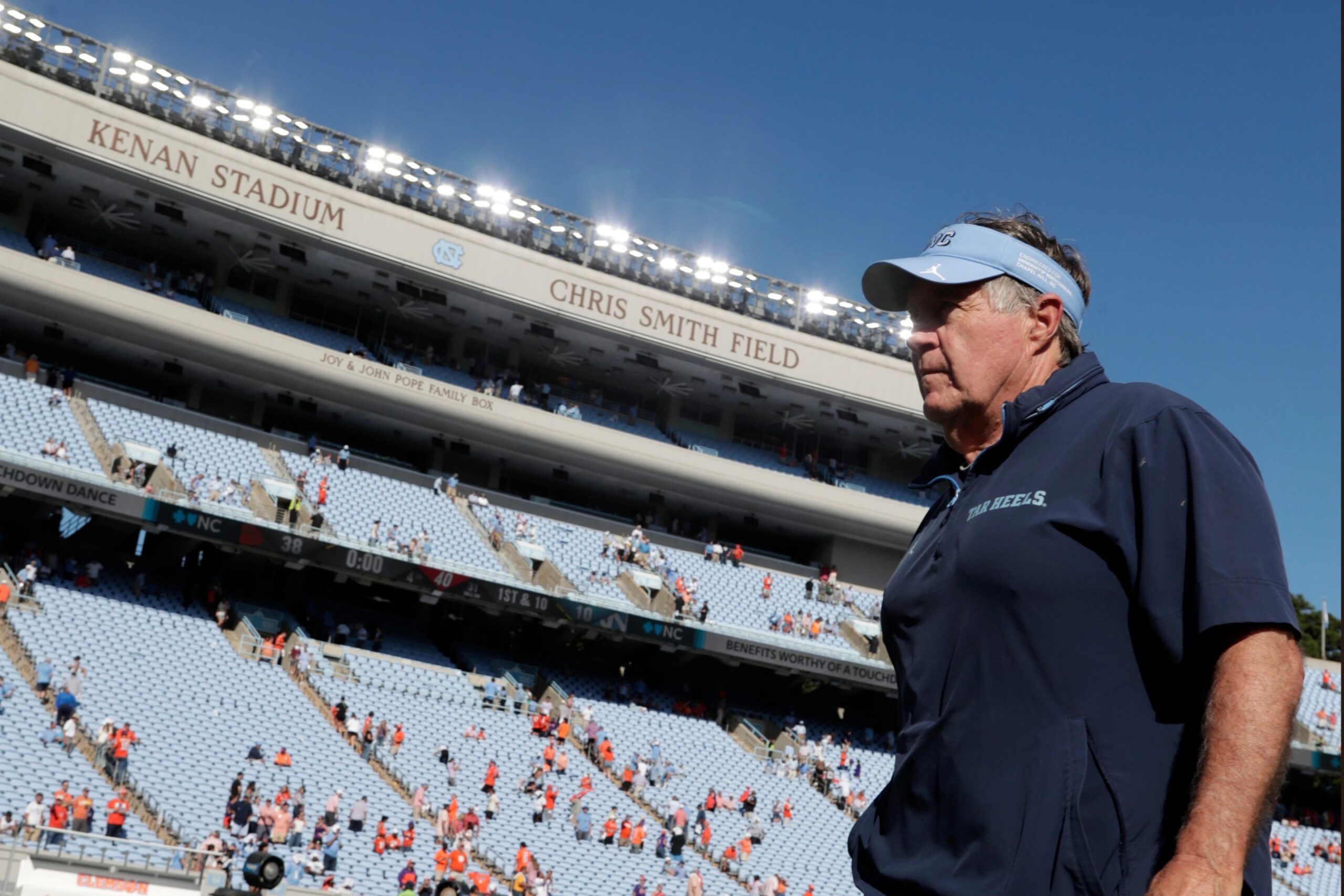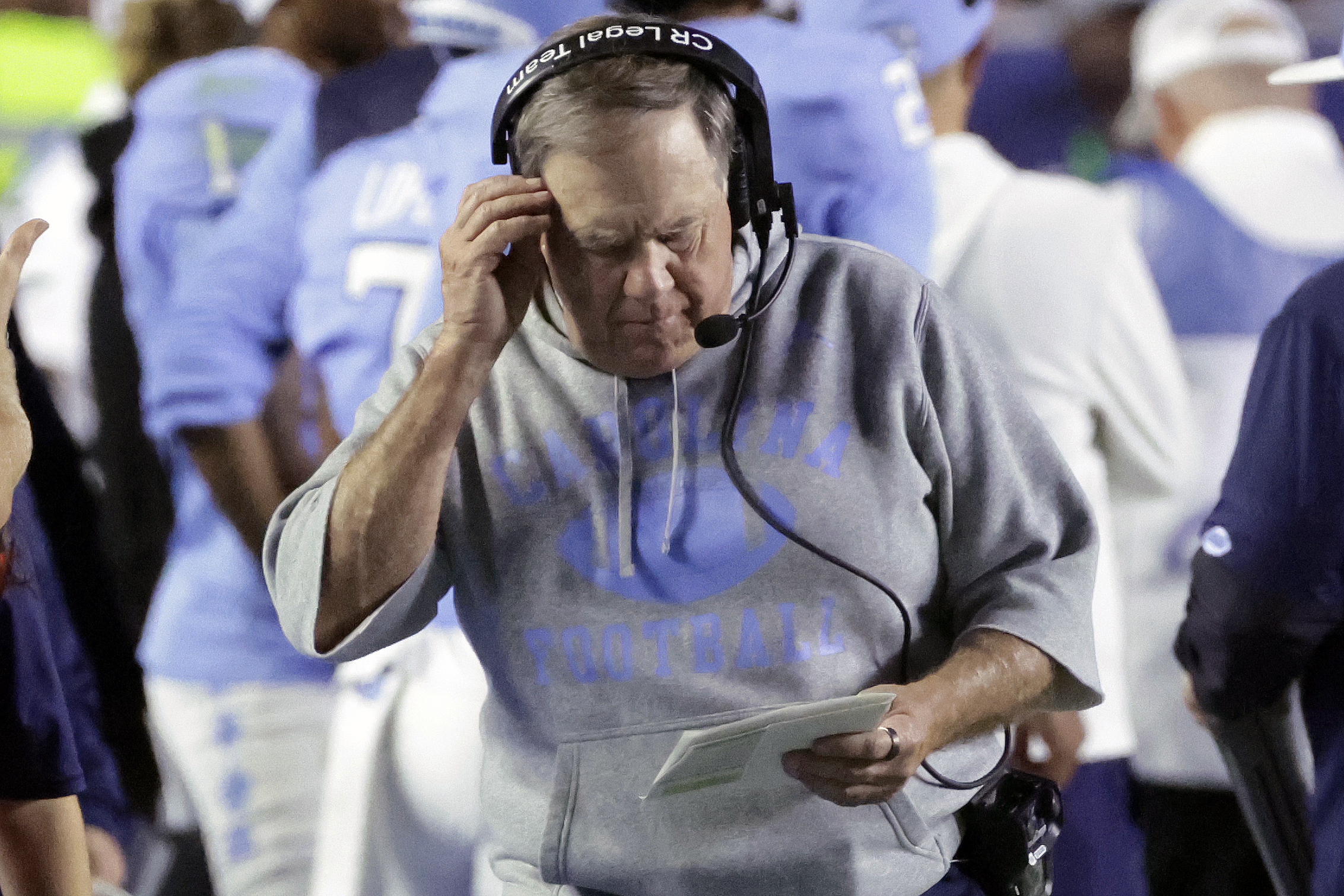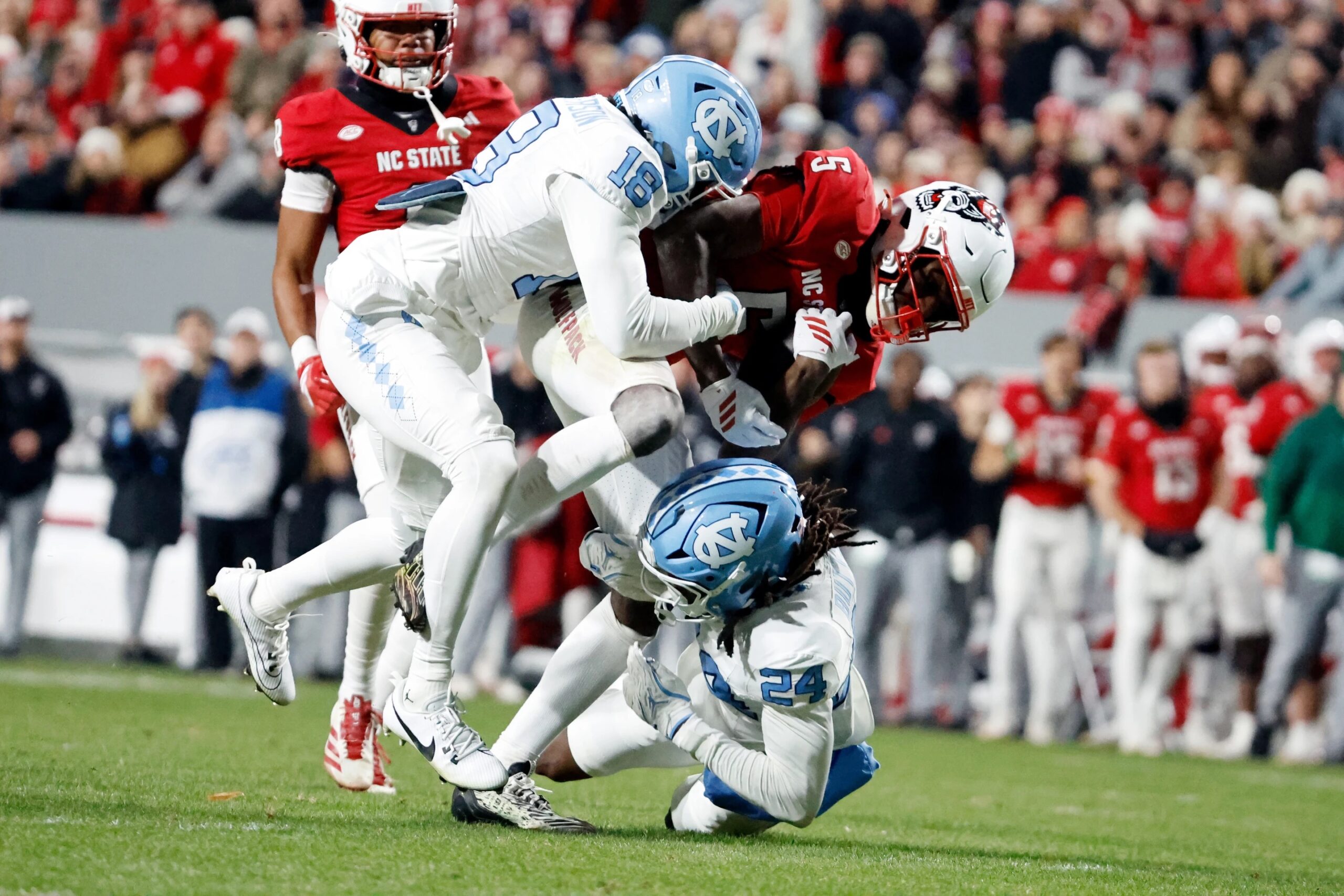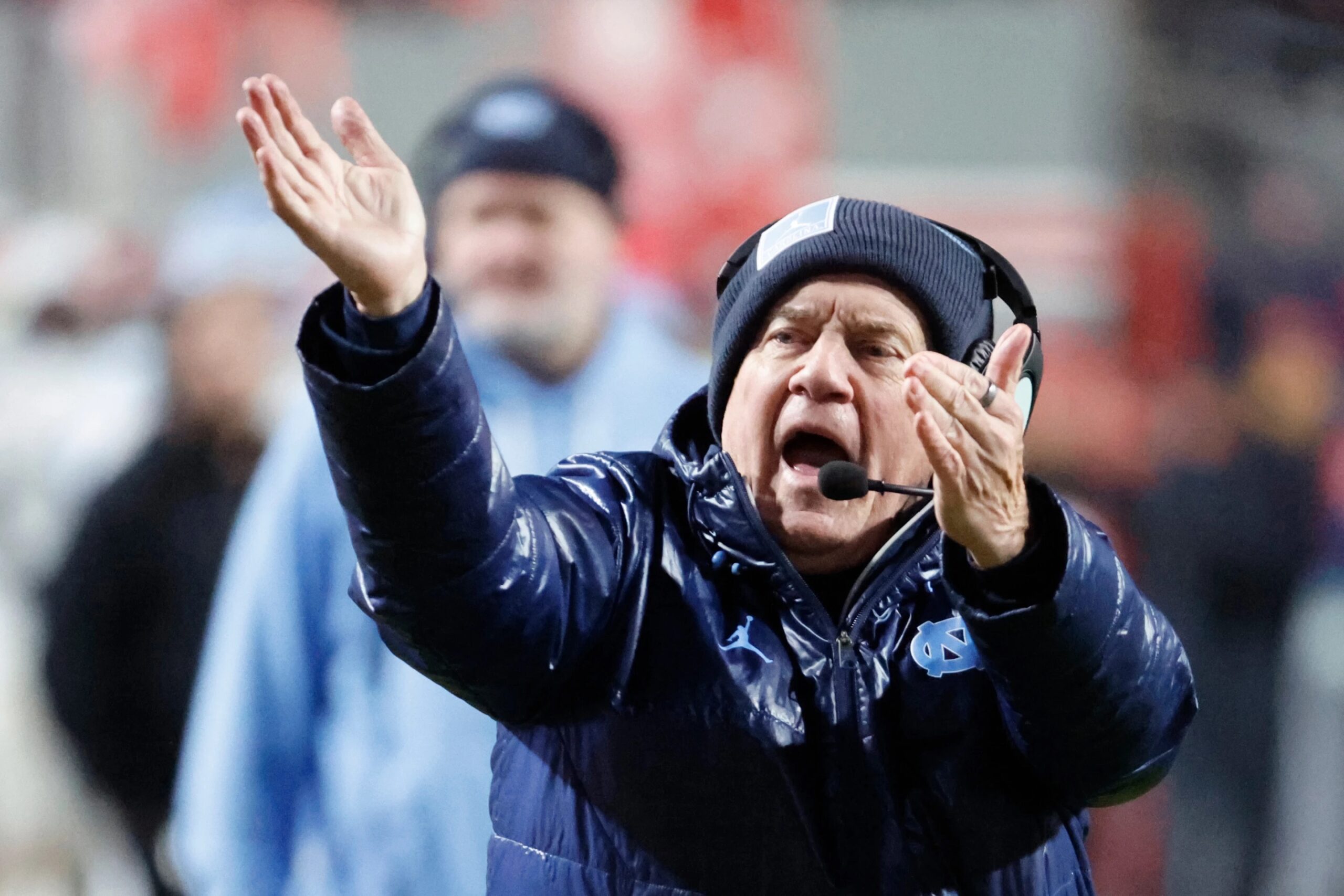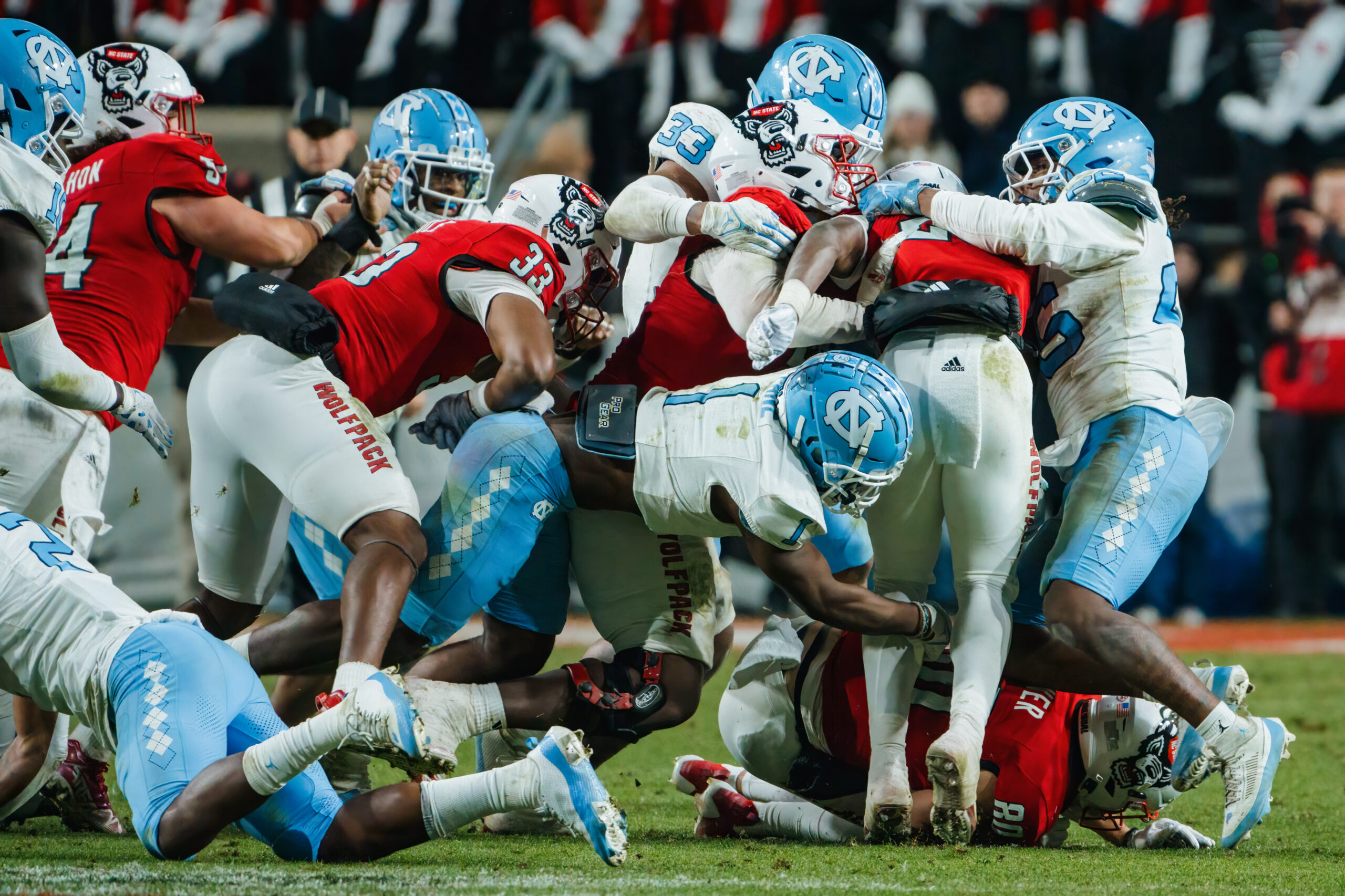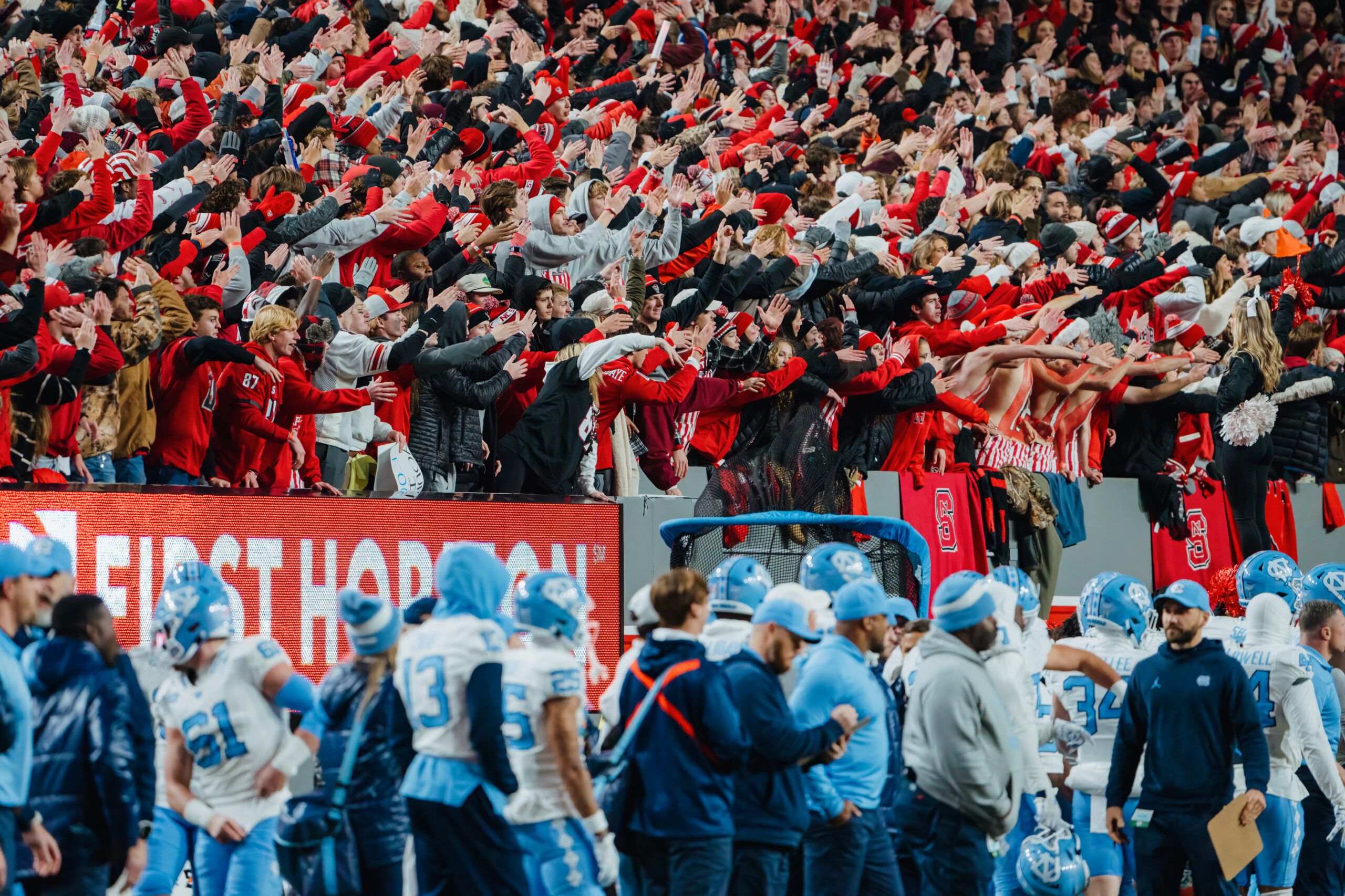
Gio Lopez has only been a Tar Heel for a few months. But already, the transfer quarterback from South Alabama is feeling the effects of being in head coach Bill Belichick’s program.
“I’m the best conditioned I’ve ever been in my life,” Lopez said at the ACC Kickoff in Charlotte Thursday afternoon. “Back at South, we ran a good bit, but coming here, I remember the first time they introduced us to how we run. I was like, ‘Wow, this is a little different for me.'”
The improved conditioning has been a pillar of Belichick’s short tenure with the Tar Heels. The eight-time Super Bowl champion hired a new head chef and a new head strength and conditioning coach to fill out his staff. The latter, Moses Cabrera, worked with Belichick for more than a decade with the New England Patriots. Now, the same program which sharpened the likes of Tom Brady and Rob Gronkowski has descended on Chapel Hill. The Tar Heels say it’s like nothing they’ve ever seen before.
“A lot of schools say they run every day, but we run every day,” said sophomore receiver Jordan Shipp. “We do some type of speed training every day. I feel like that helps you in the long run, just being able to have strong hamstrings, have strong soft tissue, muscles, stuff like that.”
“We run like a cross-country team,” defensive back Thad Dixon told reporters. “Coach Moses is one of the best at what he does… He’s been one of the best strength and conditioning coaches in the [NFL]. And as soon as he steps foot on a college campus, he’s definitely one of the best strength and conditioning coaches in college.”
Cabrera’s presence is no small thing for a program which has seen its fair share of critical midseason injuries. All-ACC tight end was lost for the season in 2024 due to a wrist injury, while receiver Kobe Paysour met the same fate after injuring his foot in practice in 2023.
Now, players say the recovery process has changed for the better under Cabrera’s guidance. In addition, defensive back Will Hardy spoke highly of the team’s new nutrition program under new head chef Josh Grimes.
“The food we eat is fueling us very well,” Hardy said. “The attention to detail in recovery; guys getting injured, they’re back in no time.”
That fuel is needed to withstand Cabrera’s punishing workout regimen. Shipp described a weekly routine known as “bouts,” during which players have three minutes to run 800 yards – the length of eight football fields. The players do three sets of bouts, with three-minute rest periods between each set. The total length of 2,400 yards measures just under a mile and a half.
The trials are not for the faint of heart – heat indexes have routinely risen into the triple digits in Chapel Hill during the months of June and July.
“It’s about the most tired you’re ever gonna get,” offensive lineman Christo Kelly said of the bouts earlier in the summer. “But you see the guys to the left and the right giving everything they have. It speaks to the culture of the whole team. Everyone’s pushing each other. You’re suffering, but it’s a good thing.”
“That’s team bonding right there,” said Lopez, echoing the man who could very well deliver him the first snap of the 2025 season. “If I look over to the left, and the man on the left is fighting his butt off to keep competing, and I look to the right and you’re competing as well, then why don’t I compete?”
Lopez is no stranger to using his legs – he averaged 5.6 yards per carry and scored seven rushing touchdowns last season at South Alabama. Now, the man who led a Jaguar offense which scored at least 30 points seven times in 12 starts is reportedly in the best shape of his life.
“We practiced at a very high level,” Belichick said in June. “Similar to what we have done in the past with Moses Cabrera… and the players were able to respond to that and maintain not only good health, but a high-quality performance. We didn’t run out of gas.”
It was quite the statement from a program which seemed to annually do just that – run out of gas – under Belichick’s predecessor.
Cabrera’s bouts have – to use one of his boss’s favorite sayings – done their job. When your body remembers a three-minute, 800-yard sprint, a 40-yard go route suddenly doesn’t seem so bad anymore.
The key to everything, said Shipp, is endurance.
“You want to get used to being able to do what you do,” he said, “while you’re tired.”
Featured image via UNC Football on Twitter
Chapelboro.com does not charge subscription fees, and you can directly support our efforts in local journalism here. Want more of what you see on Chapelboro? Let us bring free local news and community information to you by signing up for our newsletter.

